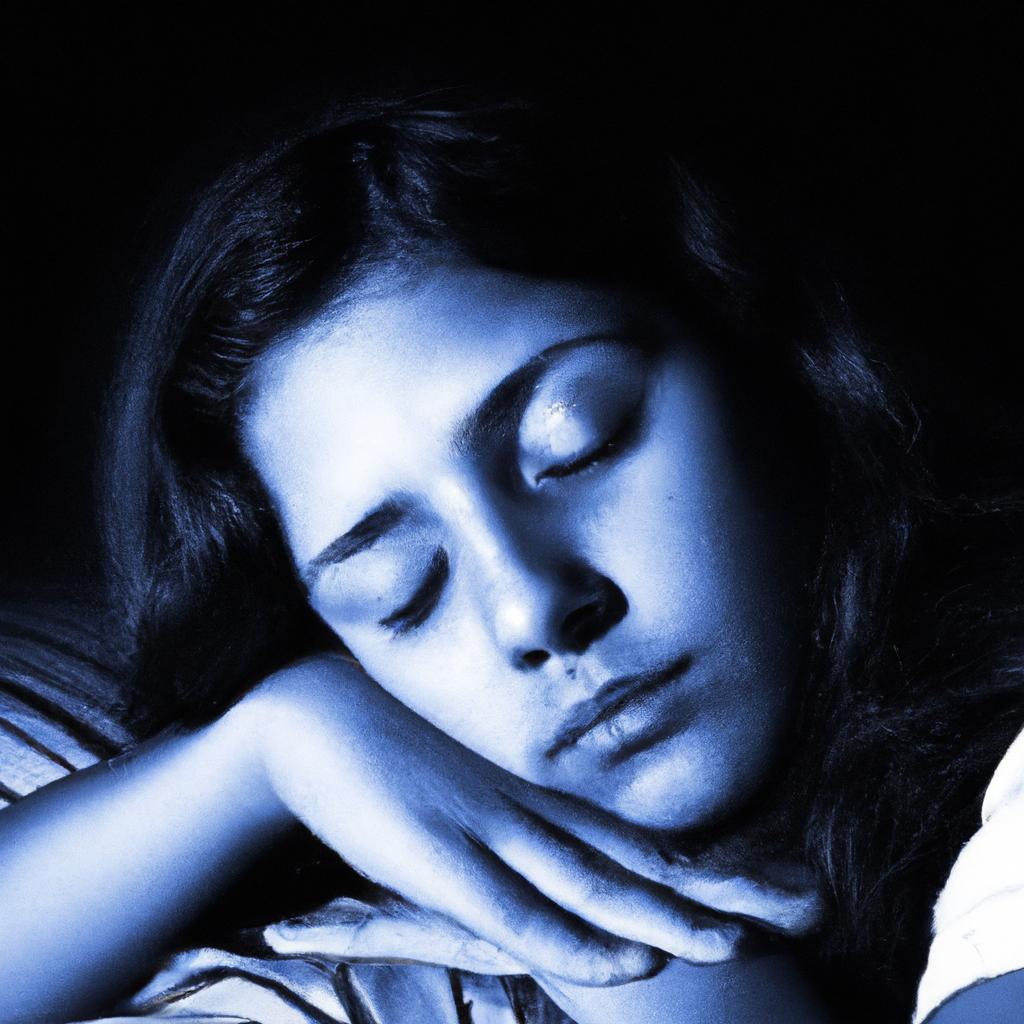As the stars twinkle above and the world around us drifts into slumber, our minds and bodies enter a mysterious realm – the realm of sleep. But what happens when this delicate balance is disturbed, when the peaceful sanctuary of rest becomes a battleground of tossing, turning, and restless thoughts? In this article, we will delve into the intricate connection between sleep disorders and mental health, uncovering the hidden ties that bind these two crucial aspects of our well-being. Join us on a journey through the night, where dreams and nightmares intertwine, shedding light on the profound impact that lack of sleep can have on our mental health.
Table of Contents
- Understanding the Impact of Sleep Disorders on Mental Health
- Exploring the Connection Between Insomnia and Anxiety Disorders
- The Influence of Sleep Apnea on Depression Symptoms
- Tips for Managing Sleep Disorders to Improve Mental Wellbeing
- Q&A
- Future Outlook
Understanding the Impact of Sleep Disorders on Mental Health
Sleep disorders can have a profound impact on our mental health, often leading to a range of emotional and psychological issues. Lack of quality sleep can contribute to increased stress, anxiety, and depression, making it crucial to address any sleep disturbances early on to prevent further complications. Research has shown a strong connection between poor sleep and mental health conditions, highlighting the importance of prioritizing good sleep habits for overall well-being.
Understanding the link between sleep disorders and mental health is essential for improving our overall quality of life. By recognizing the impact of sleep disturbances on our emotional and cognitive functioning, we can take proactive steps to prioritize sleep hygiene and seek professional help when needed. Developing a consistent bedtime routine, creating a comfortable sleep environment, and practicing relaxation techniques can all contribute to better sleep and improved mental health outcomes. Remember, a good night’s sleep is not just a luxury – it’s a necessity for our mental well-being.
Exploring the Connection Between Insomnia and Anxiety Disorders
Studies have shown a strong correlation between insomnia and anxiety disorders, suggesting that these two conditions may be closely linked. People with anxiety disorders often experience difficulties falling or staying asleep, which can exacerbate their anxiety symptoms. In turn, the lack of quality sleep can also impact one’s mental health, leading to a vicious cycle of insomnia and anxiety.
Some potential reasons for the connection between insomnia and anxiety disorders include:
- Hyperarousal: Individuals with anxiety disorders may have heightened levels of arousal, making it difficult for them to relax and fall asleep.
- Stress: The chronic stress associated with anxiety can disrupt the body’s natural sleep-wake cycle, leading to insomnia.
- Biological factors: Imbalances in neurotransmitters and hormones related to both sleep and anxiety can contribute to the development of both conditions.
The Influence of Sleep Apnea on Depression Symptoms
Sleep apnea is a common sleep disorder that affects millions of people worldwide. It is characterized by pauses in breathing during sleep, leading to poor sleep quality and daytime fatigue. Recent studies have shown a strong connection between sleep apnea and mental health issues, particularly depression.
Research has revealed that individuals with sleep apnea are at a higher risk of developing symptoms of depression. The disrupted sleep patterns and low oxygen levels associated with sleep apnea can have a significant impact on mood and overall well-being. Understanding this link is crucial in finding effective treatment options for both sleep apnea and depression. Here are some key points to consider when exploring the connection between sleep disorders and mental health:
- Screening: It is important for individuals with sleep apnea to be screened for depression symptoms, as early detection can lead to timely intervention.
- Treatment: Treating sleep apnea can improve sleep quality and potentially alleviate symptoms of depression.
Tips for Managing Sleep Disorders to Improve Mental Wellbeing
When it comes to managing sleep disorders to improve our mental wellbeing, there are several strategies that can make a significant difference in our overall health. One important tip is to establish a consistent bedtime routine. Going to bed and waking up at the same time each day can help regulate our body’s internal clock, making it easier to fall asleep and wake up feeling refreshed. Incorporating relaxation techniques, such as deep breathing exercises or gentle yoga stretches, before bedtime can also help calm the mind and body, promoting better sleep.
Another key tip is to create a sleep-friendly environment. This includes keeping your bedroom dark, quiet, and cool, as well as investing in a comfortable mattress and pillows. Limiting screen time before bed and avoiding caffeine and heavy meals in the evening can also improve sleep quality. Lastly, consider seeking professional help if your sleep disorder is impacting your mental health. Consulting with a healthcare provider or sleep specialist can help identify and address any underlying issues that may be contributing to your sleep problems.
Q&A
Q: What is the relationship between sleep disorders and mental health?
A: Sleep disorders have been found to have a significant impact on mental health, with research showing a bidirectional relationship between the two.
Q: How do sleep disorders affect mental health?
A: Sleep disorders can lead to an increased risk of developing mental health conditions such as depression, anxiety, and bipolar disorder. Similarly, individuals with mental health issues are more likely to experience sleep disorders.
Q: What are some common sleep disorders that can impact mental health?
A: Common sleep disorders that can impact mental health include insomnia, sleep apnea, restless leg syndrome, and narcolepsy.
Q: How can treating sleep disorders improve mental health?
A: Treating sleep disorders can lead to improvements in mental health symptoms and overall well-being. Proper sleep hygiene, therapy, medication, and lifestyle changes can all help manage both sleep disorders and mental health conditions.
Q: What steps can individuals take to improve their sleep and mental health?
A: Individuals can take steps such as maintaining a regular sleep schedule, creating a comfortable sleep environment, practicing relaxation techniques, exercising regularly, and seeking professional help if needed to improve their sleep and mental health.
Future Outlook
In conclusion, the intricate relationship between sleep disorders and mental health cannot be understated. As we continue to explore this intricate link, it becomes increasingly evident that addressing one without considering the other may lead to incomplete treatment. By shedding light on the impact of sleep on mental well-being, we can strive towards better understanding and ultimately, improve the quality of life for those affected. Remember, a good night’s sleep may just be the key to a healthier mind. Thank you for joining us on this enlightening journey into the world of sleep and mental health. Good night and sweet dreams.





